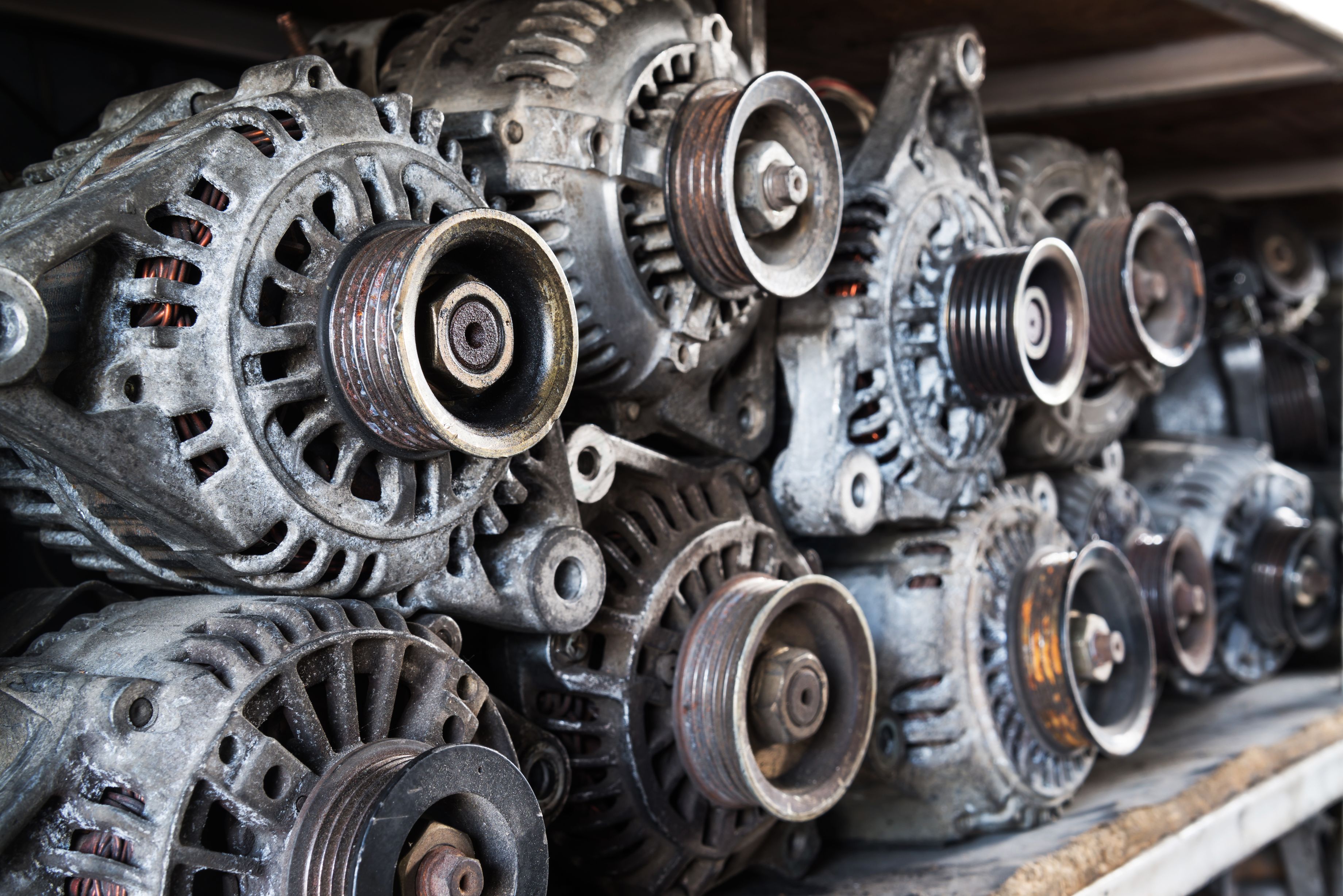Alternators and Generators When to Replace Them
You car requires a generator and alternator, but what are they? When do you need to replace them? In simple terms, an alternator is an electrical generator which utilizes an attractive pivoting field to convert mechanical drive – mostly driven by a drive belt driven by the motor crankshaft – into electrical vitality.
This gives capacity to the electrical segments and furthermore energizes the battery.
SYMPTOMS YOU MAY NEED YOUR ALTERNATOR REPLACED
1- Battery Light located on the dashboard is on
2- Dimming of interior lights and Headlights
3- Battery fails to hold a charge or appears to be flat
HOW IS AN ALTERNATOR REPLACED?
1- The charging system is tested and inspected, including the alternator output
2- Drive belts are inspected to ensure the alternator is being driven
3- The battery will be disconnected
4- The alternator will be removed and replaced if it is not charging correctly
5- The battery will be reconnected
6- The output of the alternator will be rechecked to make sure it is working correctly
TIPS TO REMEMBER
One thing to keep an eye out for on more current vehicles is that they may have a battery checking framework. This is a framework that screens the yield of the battery and changes the task of the alternator to suit. These frameworks increment the mileage of your auto and furthermore increment the life of your alternator. The most simple approach to telling if your vehicle has this framework is to check the negative battery link. On the off chance that there is a dark connector on the negative terminal or a roundabout connector around the negative battery link, your vehicle is outfitted with this component.
The battery should be separated when supplanting the alternator - which may reset your radio, so guarantee that you have your radio code convenient to re-initiate the receiver once the repair is finished.
HOW IMPORTANT IS REPLACING YOUR ALTERNATOR?
An alternator is an electrical generator which utilizes an attractive pivoting field to change over mechanical drive – usually driven by a drive belt connected by the motor crankshaft – into electrical vitality.
This gives capacity to the electrical segments and furthermore energizes the battery.
The alternator charges the battery and gives the electrical capacity to every one of your vehicles frameworks, and on the off chance that it comes up short, your vehicle will never again have the capacity to begin and may turn off whenever.
Not exclusively is this a bother, yet it is a primary wellbeing issue. If you see any of the above manifestations, it is best to have your alternator, and charging framework examined and repaired or supplanted as quickly as time permits.
Alternators and generators are two gadgets which create power. An alternator can be known as a sort of generator. Albeit both these gadgets serve a similar capacity, they are very extraordinary in each other aspect.
The two alternators and generators convert mechanical vitality into electrical vitality. The primary contrast between them is with respect to what turns and what is settled.
In an alternator, power is created when an attractive field turns inside the stator (windings of wire). In a generator, then again, the armature or windings of coil rotate inside a settled attractive field to produce power.
Alternators are viewed as more productive than generators. Alternators moderate vitality by utilizing just the energy that is required, while generators use all the energy that is delivered. Alternators have a higher yield than generators.
With regards to polarization, alternators and generators are altogether different. While generators must be enraptured after establishment, there is no requirement for polarization in alternators.
Alternator brushes last longer than those of generators. This is on account of the brushes in an alternator are utilized just to convey current to control the rotor, and the slip rings they ride are smooth.
There is another distinction among generators and alternators with regards to charging. An alternator won't charge a dead battery, and on the off chance that you do attempt to charge it, there is a plausibility that it will wear out. A generator, in any case, can be utilized for charging a dead battery.
Category: Alternators & Generators - Auto Repair
Business News
Popular Posts
- Universal Pursuit of Happiness - Wisdom from World Religions
- Overcoming Ego and Self-Centeredness - Lessons from World Religions
- Transcending Materialism - Spiritual Practices from World Religions
- Overcoming Prejudice and Intolerance - Guidance from Global Faiths
- How Mind Balance Can Improve the Mindsets of Employees
- Interfaith Insights by 1WorldPeace - The Top 100 Universal Beliefs in Global Spirituality
- Bridging Beliefs - Finding Common Ground in Love and Respect
- The SmartGuy Vision - A United Future Through Interfaith Love and Respect
- A Cautionary Vision - The Grim Future of a Divided World Without Love and Balance
- A Tapestry of Faiths - Exploring the Common Threads in World Religions
- Fostering Harmony Among Christianity Islam Buddhism Hinduism and Judaism
- Preparing Kids for Adulthood - 15 Vital Skills They Wont Learn in School
- Navigating Diversity - Jerusalem's Tactical Approach to Interfaith Harmony
- Clearing Mental Plaque: The Path to Enhanced Communication and Divine Connection
- Why Return to Jesus Christ and the Church
- Top 50 Ways to Live Longer
- Adventurous Romance -The Key to Enhancing Relationship Chemistry
- Pork Tenderloin with Mustard Cream Sauce
- Navigating Technology and Media for Optimal Mental Well-Being
- Understanding the Link Between Mental Health and Substance Abuse
